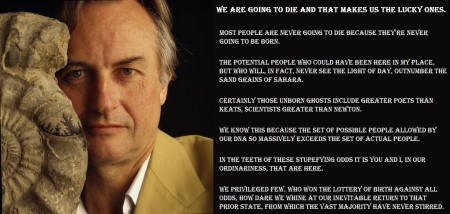Dawn’s nowhere in sight but the birds are humming and Younger Daughter’s waiting at the door, to join her 8th grade friends on a flight to D.C. Ah, the gift of youthful adventure. Must go fire up our airport taxi, there’s truly no time like the present. Seems like only yesterday we were doing this with Older Daughter, years ago now. Time’s the fastest flyer.
Kung Fu Panda says today’s always a gift, and that’s why we call it the present. Dare we open it? (No peeking? How about peak experiencing?)
Gift is Michael Sandel’s keyword in today’s Bioethics chapter, too, as his Case Against Perfection continues in chapter two. He’s an anti-doping anti-perfectionist (with the world’s most popular course on justice), worried that we’ll design ourselves right out of the possibility of accomplishing our own goals and, ultimately, achieving meaningful lives.
“Bionic Athletes,” enhanced by various means (not restricted to pharmaceuticals), have looked the gifthorse of natural (some will say “god-given”) athleticism in the mouth (he says). They’ve corrupted their respective sports and compromised our capacity to appreciate their gifts and their games.
So what? Games are only, well, games. Arbitrary, unimportant, meaningless. Right?
Maybe. Maybe not. But that’s not the central argument here. Let me just say, though, that I’ve experienced at least a few glorious afternoons in the bleachers that felt anything but “meaningless” – they felt like what James Carse calls “infinte games,” played for their own sake and experienced as ends in themselves. Never mind, though, for now.
Sandel’s clear insinuation is that we’re in danger of killing the biggest game of all, the game of life. If we make winning by all means the only thing, we’ll be robbing life of intrinsic interest, meaning, joy. Joie de vivre is the greatest gift; the dopers and cheaters and transhumanist dreamers may yet prove to be our greatest killjoys.
The deeper danger of enhancement and genetic engineering is that they represent a kind of hyper-agency, a Promethean aspiration to remake nature, including human nature, to serve our purposes and satisfy our desires.
At stake, Sandel says, is “an appreciation of the gifted character of human powers and achievements.” Such appreciation reflects a “religious sensibility” that is grateful but humble, and not so presumptuous as to try and replicate those powers. Hmmm.
Do nature’s gifts require and reward such self-abnegating gratitude? Does the “religion of humanity”?
There follows an interesting comparison, interesting at least to baseball fans, of Pete Rose and Joe DiMaggio.
Then, a surprising and at least overstated (probably false) claim: “striving is not the point of sports; excellence is.” I think Sandel really does not want to say that, does not mean what his words may convey. He wants to block the kind of ambitious striving that lusts after (say) seven medals at the Tour de France, or 73 suspiciously -amped Home Runs, or a shortcut to the marathon finish line. But surely he does not oppose striving against one’s own previous limitations to overcome internal resistance and achieve more than we knew we could.
Don’t some admirable athletes (and humans in general) possess a gift for striving?
I do think Sandel’s right to point out that “success” in baseball must continue to mean a 70% (or so) failure rate, in order to sustain our interest. I also agree that Judge Scalia is full of peanuts when he calls all rules “arbitrary.”
Sandel did an interesting Philosophy Bites interview worth hearing. His Harvard lectures on justice are wildly popular. He was also described in a recent profile as a “rock star.”
Richard Powers’ Generosity: An Enhancement (Part Two: “Walk on Air”) also raises crucial questions about the genetic gift of a sweet and happy disposition, and how well- or ill-advised we and our heirs might be to experiment with re-gifting happiness via biogenetic interventions and therapies. There are “big winners in genetics’ happiness roulette” (the biggest are hyperthymic, “every day bathed in renewable elation”) and relative losers. It’s not fair. Can we level the playing field? Can “peak experience” be packaged and sold?
A few highlights from today’s Generosity:
People want to live longer and better. When they can do both, they will. Ethics is just going to have to catch up.
…we might still become the authors of our own lives.
One glance at the only available planetary future made having children at best
benighted and at worst depraved. Nulliparity— human build-down— was a moral imperative… she was already a member of the Voluntary Human Extinction Movement.
Resolved: the human race would have been better off if the agricultural revolution had never happened. Resolved: the government should cap the salaries of professional athletes… Resolved: the human race will not survive its own ingenuity. Resolved: the cure for our chronic despair is just around the corner… Tonia Schiff can make the most cataclysmic debate almost as entertaining as reality itself.
Candace helps students understand that feeling good about themselves is more important than being “perfect…”
It took the species millions of years to climb down out of the trees, and only ten years more to jump into the fishbowl.
“If I knew a drug that produced sustained, intense, level, loving well-being without any trace of stupor or edge, I’d take it myself.” She cocked her head and twisted her lips. “You’d have to. Everyone else would already be on it.”
You have cause — so have we all — of joy.
Does generous [heart, joie, expansion, big feeling] include all those who are by nature genuine, generative, anyone pregnant with connections, keen to make more kin?
Or is generosity a question of having the right blood, the innate germ of the genteel gentry?
Enough philosophy; she has sworn off it. Philosophy never consoled anyone.
I’d spent my whole life coming here, and now I was home. Everyone alive deserves to feel that way once.
Only once?
And so we’re off to BNA. Happy flight, kids. Walk on air.


